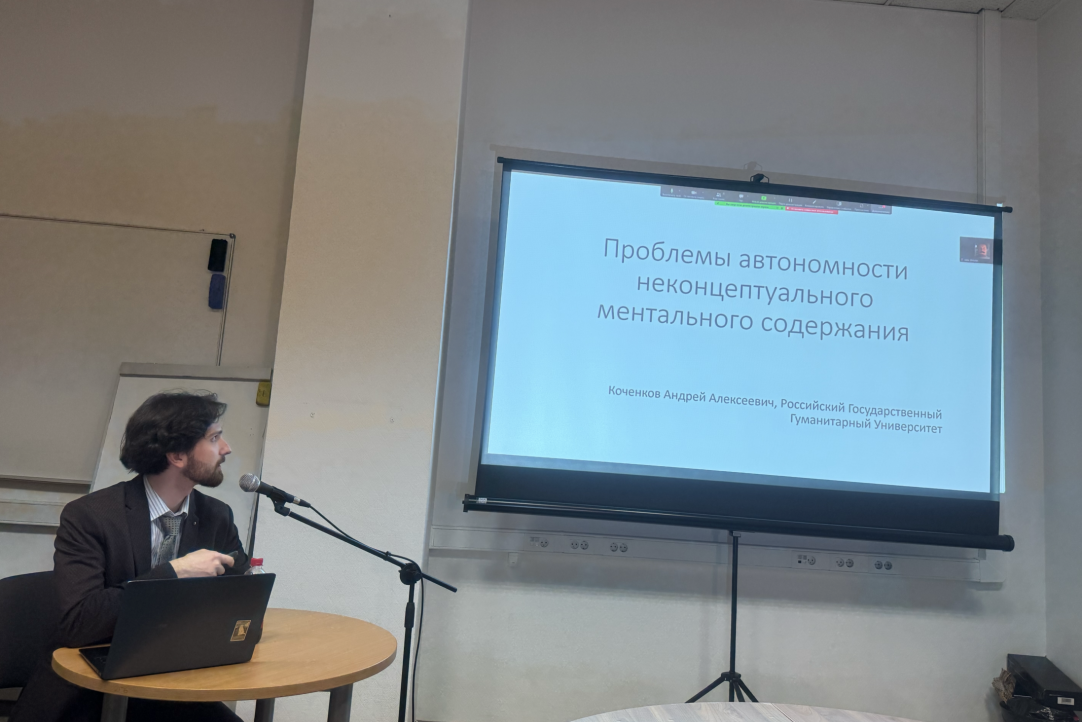Andrey Kochenkov made a presentation on the topic of "Problems of the Autonomy of Nonconceptual Mental Content"
Andrey Kochenkov (RSUH) spoke at the seminar "From the Logical Point of View," which took place on February 7.

Abstract
The notion of nonconceptual mental content, introduced by Gareth Evans (1982) and further developed by subsequent theorists, has been employed to account for two distinct sets of phenomena: first, the representational capacities of beings that lack linguistic and conceptual abilities; and second, the phenomenological characteristics of certain representational mental states—such as perception and emotions—which, as theorists argue, cannot be fully explained solely in terms of the conceptual content of propositional attitudes. Many scholars working on nonconceptual content maintain that nonconceptual representations are entirely independent of linguistic and conceptual capacities. However, historically, debates surrounding nonconceptual content can be understood as a series of attempts to constrain this claim.
Conceptualists have sought to impose strict limitations on this approach, contending that all mental content is inherently conceptual and dependent on conceptual capacities. Consequently, they argue that the mental states of beings lacking such capacities cannot be genuinely representational. Early nonconceptualists granted the independence of nonconceptual content in specific perceptual contexts, such as perceptual illusions, yet maintained that without at least some conceptual knowledge, it would be impossible to possess nonconceptual representations with objective content. This restrictive tendency persists in contemporary debates, particularly in the distinction between state nonconceptualism and content nonconceptualism. Advocates of state nonconceptualism acknowledge that certain mental states can function independently of conceptual capacities, but they deny that this entails a fundamental distinction in types of content.
In this report, I argue that although proponents of the radical autonomy of nonconceptual content effectively respond to the criticisms of their opponents, the persistent tendency to constrain the thesis of autonomy stems from a deeper issue: the difficulty of providing a positive characterization of nonconceptual content and clear criteria for individuating nonconceptual representations. The very notion of nonconceptual content is formulated in negative terms and primarily elucidated through examples, yet it encompasses an excessively broad range of diverse phenomena. Consequently, philosophers have sought to stabilize its interpretation within familiar conceptual frameworks. Thus, even if proponents of the radical autonomy of nonconceptual content are correct, they remain confronted with unresolved challenges concerning the individuation of nonconceptual representations.
